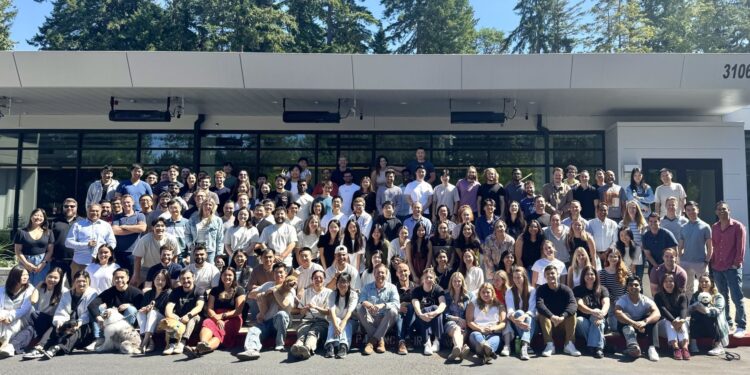OpenAI announced Tuesday its $1.1 billion acquisition of Statsig, significantly expanding the artificial intelligence giant’s presence in the Seattle region through its largest deal to date.
The ChatGPT maker will acquire the Bellevue-based product development platform, which employs more than 100 people in the area. Statsig will continue operating independently from its current offices, with all employees having the option to transition to OpenAI.
The acquisition comes just three months after OpenAI opened its Bellevue office, establishing a physical presence near partner Microsoft whilst tapping into the region’s engineering talent. Combined with existing staff, the deal brings OpenAI’s Seattle-area workforce to roughly 270 employees, according to LinkedIn data and company announcements.
S. “Soma” Somasegar, managing director at Seattle venture firm Madrona and an early Statsig investor, said the acquisition reflects OpenAI’s recognition of local talent density. “They understand as much as anybody else the talent density we have,” he noted.
Seattle ranks second only to Silicon Valley in AI engineering talent concentration, according to SignalFire’s 2024 analysis. The region hosts more than 100 companies operating satellite engineering offices, including major outposts for Meta, Google, Amazon, and Microsoft.
However, the acquisition presents competing dynamics for Seattle’s tech ecosystem. Whilst it validates the region’s ability to produce billion-dollar AI companies, it also removes an independent player from the local market. Statsig, founded by former Facebook engineers, had raised significant venture funding and was building its reputation as a challenger to established analytics platforms.
The deal differs from typical Silicon Valley expansions because OpenAI is acquiring an entire team with proven product-market fit rather than simply establishing a talent-poaching outpost. Statsig’s platform, which helps companies run experiments and analyse user behaviour, complements OpenAI’s core offerings whilst bringing expertise in data analytics.
For the broader Pacific Northwest tech scene, the acquisition signals both opportunity and consolidation risk. The region’s AI workforce remains largely concentrated among major players, creating competitive pressure for smaller startups seeking engineering talent.
OpenAI currently lists 18 open positions in Seattle and has declined to provide updated headcount figures for its regional operations. The company’s continued hiring suggests confidence in the area’s long-term value beyond simple cost arbitrage.
The $1.1 billion price tag reflects more than talent acquisition. It represents OpenAI’s bet on understanding how AI products perform in real-world applications, a capability that may prove crucial as artificial intelligence moves from experimental technology to essential business infrastructure.
Whether this expansion triggers similar moves by competitors like Anthropic or Google’s DeepMind remains to be seen. For Seattle, the challenge will be maintaining a vibrant ecosystem that balances the benefits of major corporate investment against the risks of talent concentration in a few dominant players.







